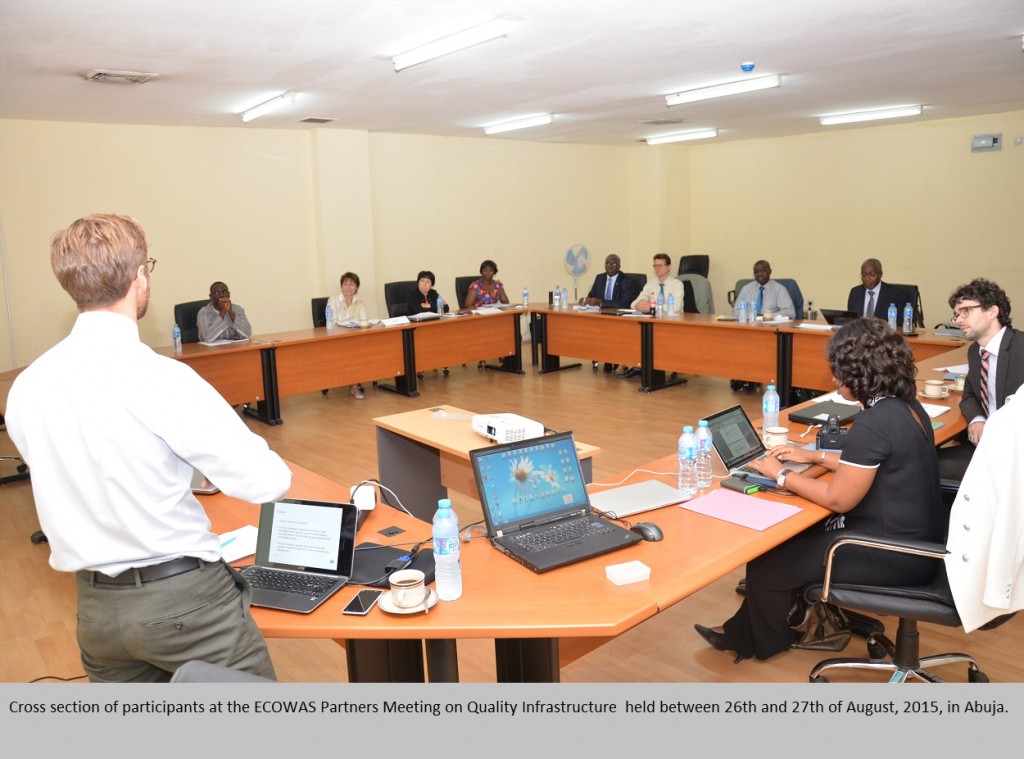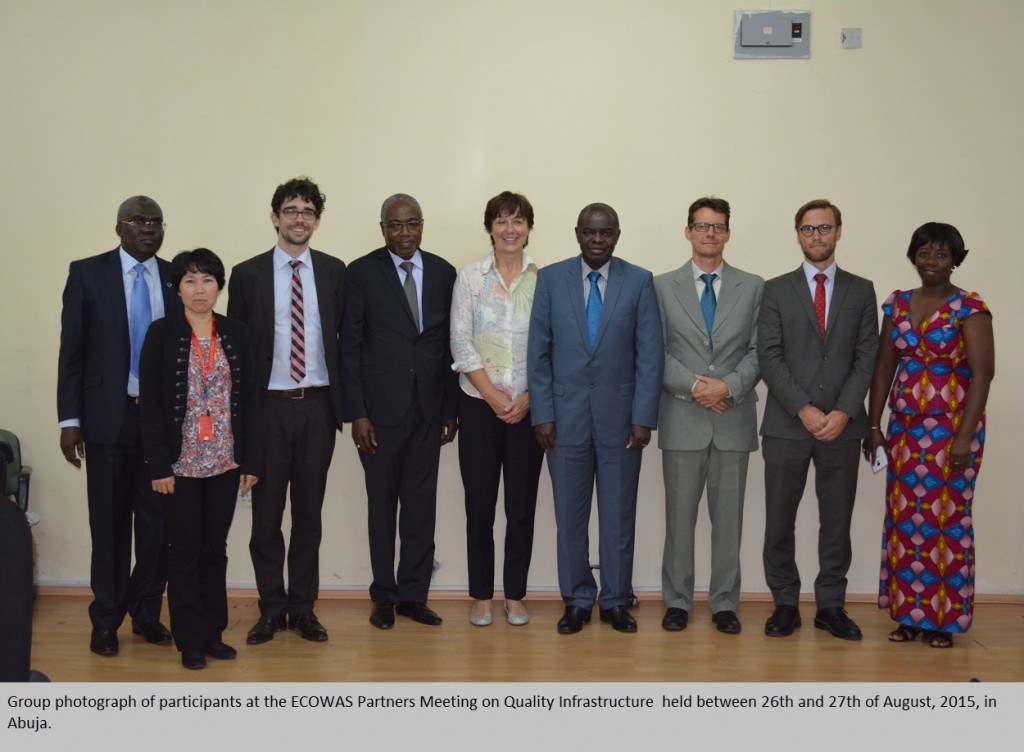 The Economic Community of West African States (ECOWAS) and its partners have intensified efforts in ensuring quality infrastructure and common standard for products and services in the region.Pursuant to this, the Department of Industry & Private Sector through the Directorate of Industry organized a two-day Quality Programmes Partners meeting to discuss issues and areas of synergy among partners. The meeting was held between 26th and 27th of August, 2015, in Abuja. The Economic Community of West African States (ECOWAS) and its partners have intensified efforts in ensuring quality infrastructure and common standard for products and services in the region.Pursuant to this, the Department of Industry & Private Sector through the Directorate of Industry organized a two-day Quality Programmes Partners meeting to discuss issues and areas of synergy among partners. The meeting was held between 26th and 27th of August, 2015, in Abuja.
The forum provided an opportunity for partners to brainstorm and agree on next line of actions to be taken that is necessary for smooth implementation of quality programs ongoing in the region.
Welcoming participants to the meeting, the ECOWAS Commissioner for Industry and Private Sector Promotion, Mr. Kalilou Traore, recalled that ECOWAS had adopted in 2010 the West African Common Industrial Policy (WACIP), where the issue of Quality was identified as a top priority. In furtherance of this a Quality Policy was also adopted in 2012 covering all pillars of quality infrastructure.
He added that the document on the Model and Principles of Harmonization of Standards in ECOWAS (ECOSHAM), which was derived from the African Model of Standard Harmonization (ASHAM), was also adopted by the Council of Ministers in 2012. The Council also adopted the Regulation on the Scheme for ECOWAS Regional Quality Infrastructure.

According to the Commissioner, the adoptions are meant to ensure that common standards for commodities, products and services are set in the region in order to encourage trade among Member States and enable the region to compete favorably in the international market.
He disclosed further that the implementation of ECOQUAL had called for different programmes like the ECOSHAM, which is being funded and implemented by the ECOWAS Commission until 2015 when the EU is expected to temporarily take over its funding
The Commissioner listed other programmes in this regard to include the West Africa Quality System Programme (WAQS) funded by the EU and implemented by the United Nations Industrial Development Organization (UNIDO) from 2015 (in continuation of an earlier programme), the ECOWAS-PTB Metrology programme and the ECOWAS-GIZ Quality Management Programme being funded by the German Government and implemented by the PTB and GIZ respectively. Also named was the ECOWAS-ARSO-SIS Programme for Capacity Building for International Standards Setting being funded by SIDA to be jointly implemented by the SIS, ARSO and ECOWAS.
The Commissioner said due to the cross-cutting and interfacing components of all the programmes towards quality it became necessary for more interaction among implementing agencies for a comprehensive and harmonious implementation and to bring about greater impact. This he opined will not only help the envisaged ECOWAS common market but also the continental Free Trade Zone planned by the African Union.
In their various remarks, the partners, emphasized the importance of all implementing agencies knowing what each other is doing in order to synergize efforts and share ideas for smooth implementation. This is with a view to achieving the desired objective of ensuring quality infrastructure and common standards in West Africa. They pledged that they will continue to provide technical expertise to ensure that the region is able to benefit from all the markets that are available for its products locally and internationally. They added that, by ensuring quality and setting common standards the West African region will not only maximize its products market potentials but safeguard the region from dumping of unwanted and low quality or sub-standard products and services from outside the region.
The two-day quality programmes partners’ meeting was coordinated by the Director of Industry, Mr. Mensan Lawson-Hechelli and attended by ECOWAS partners, including United Nations Industrial Development Organization (UNIDO), German International Cooperation Agency (GIZ), German National Metrology Institute (PTB), Swedish Standard Institute (SIS) and African Organization for Standardization (ARSO).
Having all become members of the World Trade Organization (WTO) ECOWAS states are required to develop quality infrastructure that meets international standards to reduce the Technical Barrier to Trade (TBT). This commitment contributes significantly to improving the free movement of goods and services within the ECOWAS zone, a principle considered as a priority for the region. |





